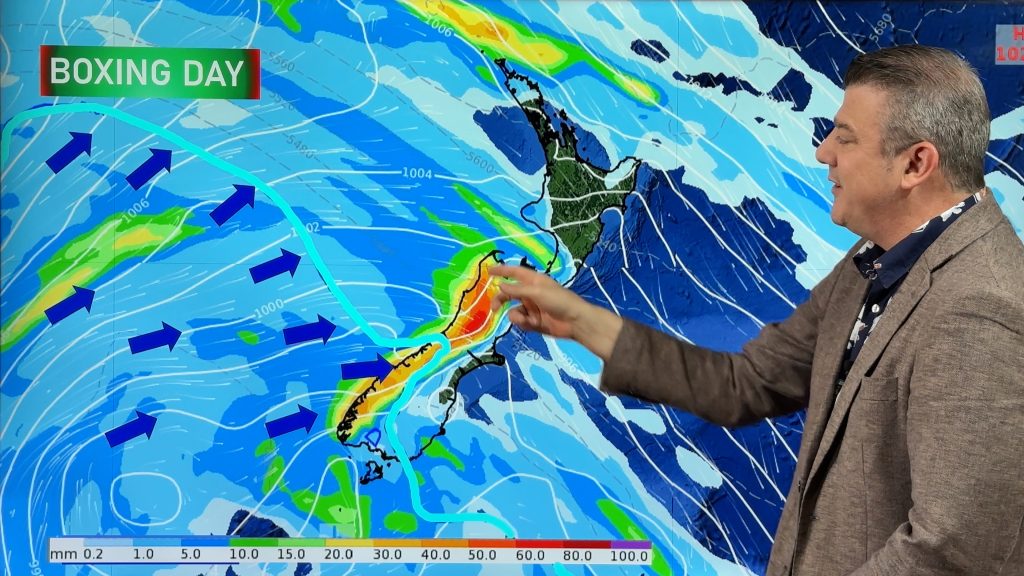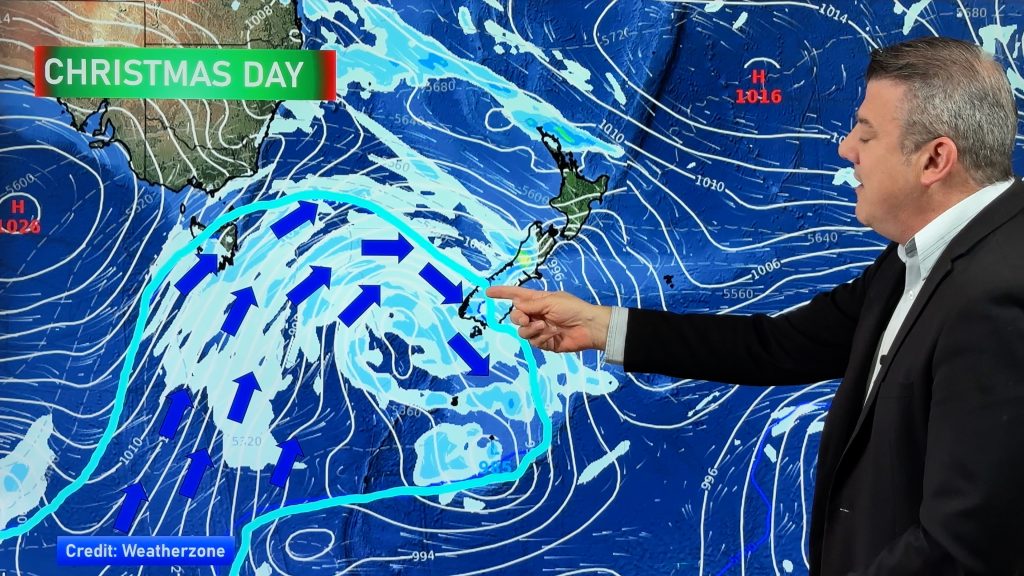
> From the WeatherWatch archives
We’re now in the peak of summer and for the next few weeks we can expect warm nights, hot days and high humidity at times.
High humidity in New Zealand is normal, in winter it causes foggy damp mornings but in summer when it’s combined with heat it leads to muggy conditions.
On Tuesday humidity levels were at 99% for some, which basically means if you sweat the air is so saturated around you it cannot absorb it – so your skin remains sticky and gross and you can’t cool down.
Today – despite the heat – the humidity levels have eased for some, but with recent rain inland some places will feel hot and humid (and you can add a few more degrees to your daytime high to reflect the ‘feels like’ temperature when it’s hot and humid).
As we head into the end of this weekend the airflow around New Zealand will begin to tilt more north east again and that’s because next week a sub-tropical low is expected to drop south over the country bringing heavy rain, strong winds, and large seas (in fact it may coincide with our next king tide so more coastal flooding is possible in northern facing areas).
This sub-tropical low next week is likely to bring extreme humidity to some regions and high rainfall rates.
Before it arrives the northerlies will boost temperatures even further into the low to mid 30s in both islands with isolated thunderstorms too.
Southland – once again you’re expected to reach the low 30s C next Monday and Tuesday ahead of this northern low (and a cooler change around next Wednesday).
WeatherWatch.co.nz is now forecasting daytime highs in Central Otago at the start of next week may now reach the mid to late 30s in some pockets. The North Island’s eastern areas and interior regions will also push into the low 30s with higher humidity than inland parts of the South Island.
The next week across New Zealand will be hot and at times humid and muggy. Summer heat usually peaks from late January to mid February in New Zealand.

– Map for 12noon on February 1st shows a significant tropical rain maker moving south over the country – it’s too early to lock in but this could cause some flooding and may bring rain into NZ’s driest regions. It may also combine with king tides to cause more coastal erosion and potential flooding.
– WeatherWatch.co.nz
Comments
Before you add a new comment, take note this story was published on 23 Jan 2018.




Add new comment
Dave on 24/01/2018 7:10pm
Hi Phil
That low which will probably be an ex cyclone looks rather nasty if the models are correct, & most of them seem to be in general alignment. Where they differ seems to be where it will actually cross NZ & where it heads to after that.
The good news looks to be a short event due to it moving quickly.
Cheers
Dave
Reply
WW Forecast Team on 24/01/2018 7:32pm
Hi Dave – yes you nailed it! Looks significant, especially the risk of flooding and king tides. Will be putting more info out about it today in my weather video and in news updates. Almost a month exactly from our last big sub-tropical low too.
Cheers
Phil
Reply
Guest on 24/01/2018 2:04am
yeah but the days are getting shorter by about 2 minutes a day isn’t it now
Reply
WW Forecast Team on 24/01/2018 2:14am
HI there yes the days are now slowly getting shorter but the hottest weather is usually in February and the oceans take until March to often reach their peak heat. It’s called thermal lag. 🙂
Cheers
WW
Reply
RWood on 24/01/2018 6:01am
For NZ as a whole the January and February mean temps are identical to 2 decimal places (averaging over 220+ stations). NI is a little over 0.2C warmer in February but the reverse applies for the SI average. The differences range from about 0.6C warmer in January in parts of Central Otago and other inland zones, to about 0.7C warmer in February in the far north. Picking the warmest fortnight would give slightly different results for the 2 islands.
Reply
WW Forecast Team on 24/01/2018 7:32pm
Very interesting RWood – and nice to hear from you!
Cheers
Phil
Reply
RWood on 24/01/2018 9:19pm
You’re welcome! Incidentally Kelburn is a stone-cold certainty to have its hottest ever month given the outlook … not sure yet how many other areas will do likewise.
Reply
WW Forecast Team on 24/01/2018 10:11pm
I love the use of stone-cold in a sentence talking about the hottest ever month!! 🙂 And wow, that is quite extraordinary! I think we’ll be seeing a few monthly temperature records broken. The overnight lows nationwide are quite high too.
Phil
Reply